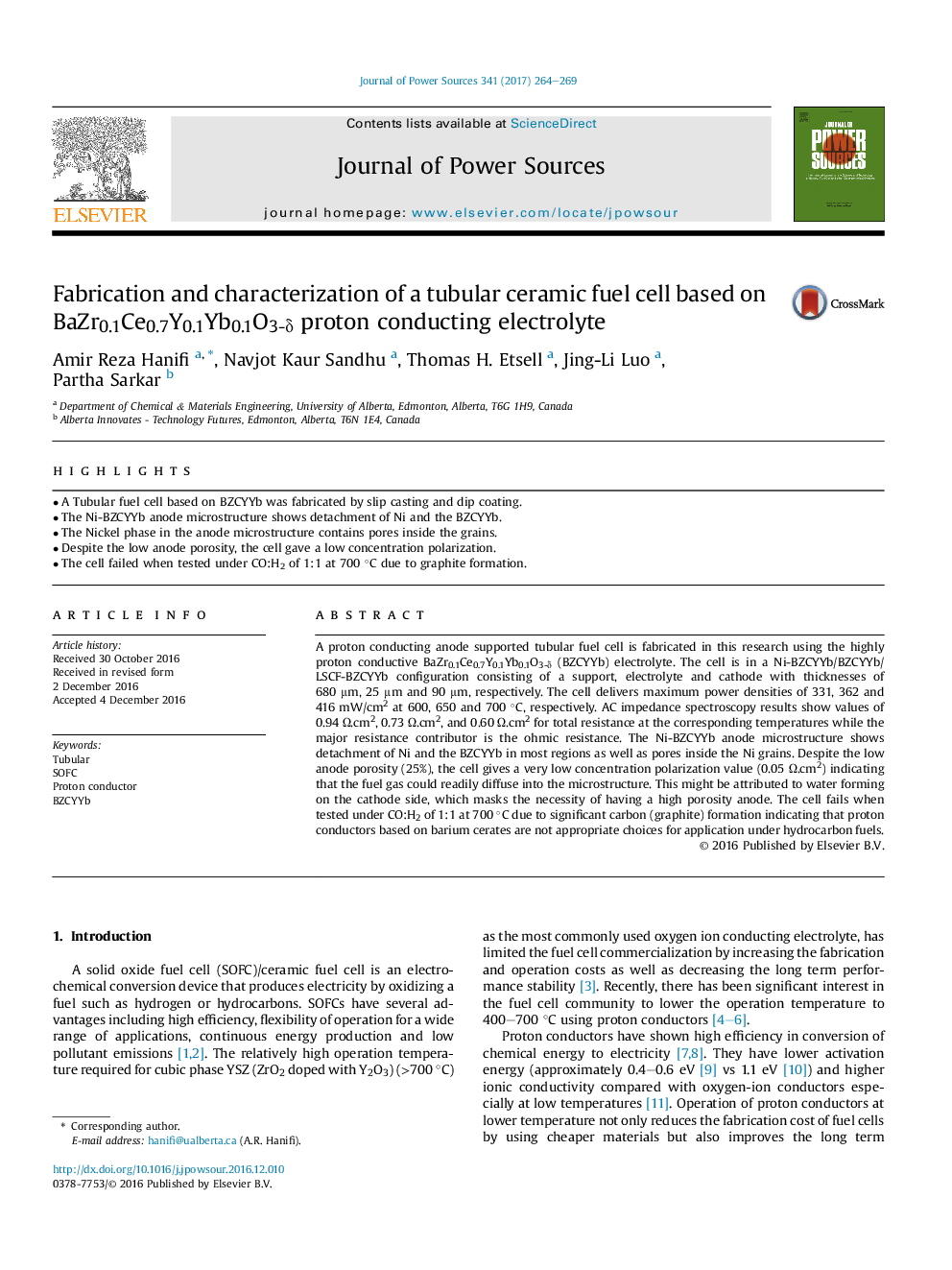| کد مقاله | کد نشریه | سال انتشار | مقاله انگلیسی | نسخه تمام متن |
|---|---|---|---|---|
| 5149776 | 1497891 | 2017 | 6 صفحه PDF | دانلود رایگان |
عنوان انگلیسی مقاله ISI
Fabrication and characterization of a tubular ceramic fuel cell based on BaZr0.1Ce0.7Y0.1Yb0.1O3-δ proton conducting electrolyte
دانلود مقاله + سفارش ترجمه
دانلود مقاله ISI انگلیسی
رایگان برای ایرانیان
موضوعات مرتبط
مهندسی و علوم پایه
شیمی
الکتروشیمی
پیش نمایش صفحه اول مقاله

چکیده انگلیسی
A proton conducting anode supported tubular fuel cell is fabricated in this research using the highly proton conductive BaZr0.1Ce0.7Y0.1Yb0.1O3-δ (BZCYYb) electrolyte. The cell is in a Ni-BZCYYb/BZCYYb/LSCF-BZCYYb configuration consisting of a support, electrolyte and cathode with thicknesses of 680 μm, 25 μm and 90 μm, respectively. The cell delivers maximum power densities of 331, 362 and 416 mW/cm2 at 600, 650 and 700 °C, respectively. AC impedance spectroscopy results show values of 0.94 Ω.cm2, 0.73 Ω.cm2, and 0.60 Ω.cm2 for total resistance at the corresponding temperatures while the major resistance contributor is the ohmic resistance. The Ni-BZCYYb anode microstructure shows detachment of Ni and the BZCYYb in most regions as well as pores inside the Ni grains. Despite the low anode porosity (25%), the cell gives a very low concentration polarization value (0.05 Ω.cm2) indicating that the fuel gas could readily diffuse into the microstructure. This might be attributed to water forming on the cathode side, which masks the necessity of having a high porosity anode. The cell fails when tested under CO:H2 of 1:1 at 700 °C due to significant carbon (graphite) formation indicating that proton conductors based on barium cerates are not appropriate choices for application under hydrocarbon fuels.
ناشر
Database: Elsevier - ScienceDirect (ساینس دایرکت)
Journal: Journal of Power Sources - Volume 341, 15 February 2017, Pages 264-269
Journal: Journal of Power Sources - Volume 341, 15 February 2017, Pages 264-269
نویسندگان
Amir Reza Hanifi, Navjot Kaur Sandhu, Thomas H. Etsell, Jing-Li Luo, Partha Sarkar,